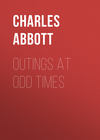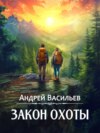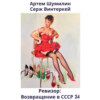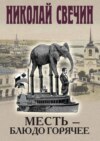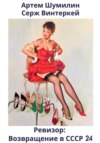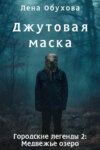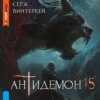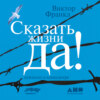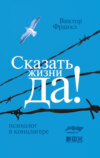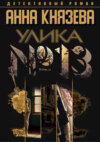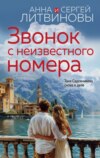Читать книгу: «Outings At Odd Times»
PREFATORY
Nature, and Books about it
Often, during a long and dusty walk in midsummer, I have chanced suddenly upon a wayside spring, and stooping drank directly from the bosom of Mother Earth. Filled with the pleasant recollections of such moments, how tame is all other tipple, even though the crystal is a marvel of art, with “beady bubbles winking at the brim”!
So, too, I find it with matters of graver import. I would that no one should aid me in gathering my stores, but with my own hands I would delve at the fountain-head. The spirit of such an aim is a spur to youth, but becomes a source of amusement rather than a more serious matter in our maturer years. I am more than willing now to take nature at second hand. But is this safe? How far can we trust another’s eyes, ears, and sense of touch and smell? There are critics scattered as thickly as motes in a sunbeam, veritable know-alls, who shriek “Beware!” when nature is reported; but, for all this, outdoor books are very tempting to a host of people, and in the long run educate rather than misinform. That ever two naturalists should wholly agree, after careful study of an animal, is not probable. There will be the same differences as exist between two translations of the same book. What a crow, a mouse, or a gorgeous cluster of blooming lotus is to me, these will never be to another; but, because of this, do not persist that your neighbor is blind, deaf, or stupid. I recently had a horse ask me to let down the bars; to another it would have been merely the meaningless fact that the horse neighed.
Having an outdoor book in hand, when and how should it be read? It is no doubt very tempting to think of a shady nook, or babbling brook, or both, in connection with the latest outdoor volume. Possibly, as you start out for a quiet day, you string together a bit of rhyme concerning the book, as Leigh Hunt did and others have done since. It is a common practice to carry a book into the fields, but not a logical one. How can a book, even one of outdoor topics, compete with Nature? Certainly if Nature is to the reader but a convenient room, a lighter and more airy one than any at home, does it not signify a serious lack in the mind of that person? From a notice of a recent publication I clip the following: “A capital book to slip into one’s pocket when taking an outing.” If, because of its size, it could be readily slipped into one’s pocket, then it was a capital way of getting rid of it. What sort of an outing can one have who reads all the while? Is not the cloud-flecked sky something more than a ceiling, the surrounding hills more than mere walls, the grass and flowers more than carpet? There is one pleasure even greater than that of reading, and that is being out of doors. To read at such a time seems to imply one of two things: either that the reader knows Nature thoroughly, or is indifferent to such knowledge. The former phenomenon the world has never seen; the latter, to speak mildly, deserves our pity. To escape ridicule, which is something, to insure happiness, which is more, to avoid great dangers, which is of even greater importance, one must know something of Nature. In one sense she is our persistent foe. She mantles with inviting cover of rank grass her treacherous quicksands; she paints in tempting colors her most poisonous fruits; she spreads unheralded the insidious miasma from the meadow and the swamp; but neither the quicksand, the unwholesome fruit, nor noxious vapors is an unmixed evil. Let us take them as they are, see them as parts and parcels of a complete whole, and each hour of every outing is an unclouded joy. Nature never excuses our ignorance.
Whatever one’s position in life, does a knowledge of Nature prove unneeded? Should we not know that potatoes grow beneath the sod, as well as apples grow upon trees? Gather a crowd at random on the streets, or corner a half-dozen at some social gathering, and how many can tell you the life-history of a mushroom or a truffle? “Do potatoes grow upon bushes?” was asked not long since. This was positively painful, but worse things have happened. A young lady, from a city renowned for its schools, startled her country cousins by asking, while toying with an ear of corn, “Which end, when you plant, do you put in the ground, the blunt or the pointed one?” If botany is impracticable in the curriculum of the public schools, ought not, at least, the natural history of our common articles of food to be taught? Can not such ignorance as this implied be banished from the land?
But I have wandered; let us come back to books. If books, even those descriptive of nature, are out of place in the woods, meadows, or by the brook-side, when should they be read? Clearly, when the scenes they treat of are not accessible. Why should we be entertained with a description of a bird or flower, when they are both before us? It seems incredible that any one should be better pleased with another’s impressions, however cunningly told, than with those of his own senses. It is a strange mental condition that can delight in the story of a bird, and yet have no desire to see the creature; to be a witness to all the marvelous cunning that this bird exhibits. Few are those among us whose outings cover a lifetime; and when the happy days of freedom come to us, let books be kept behind, and with untrammeled eyes and ears let us drink in the knowledge that comes to us at no other time. Summer is all too short a season for other occupation than enthusiastic sight-seeing and sound-hearing.
Long before autumn most of us must be back to the busy town. Business demands our work-day hours; and now, during the leisure of long winter evenings, with what delight one may recall vacation-days, reading outdoor books! The library now becomes the mountain, lake, or river. With Thoreau, Burroughs, or Jeffries at hand, one can hear the summer birds in the shrill whistle of the wind, and the babbling of summer brooks in the rattle of icy rain.
For permission to reprint, in this collected form, the brief essays here brought together, the author is indebted to Messrs. Harper & Bros., D. Appleton & Co., the editors of the Christian Union, Christian at Work, and of Garden and Forest, of New York; and to the editor of the American, of Philadelphia Pa.
C. C. A.Trenton, New Jersey, September 1, 1890.
PART I
IN WINTER
A Winter Sunrise
The waning moon was scarcely visible in the western sky and not a star shone overhead, when I ventured out of doors, at the call of the gathering crows. These noisy scavengers of the river’s shore had evidently slept with one eye open, and at the first faint glimmering of the dawn signaled, in no uncertain tones, the coming day. Across the brown meadows floated their clamorous cries and roused me when my own slumber was most profound; but I responded promptly, willing at least, if not wildly anxious, to witness a winter sunrise.
I have said the meadows were brown; such was their color when I saw them last; but now, every wrinkled blade of last year’s grass was daintily feathered with pearly frost. A line, too, of steel-gray crystals topped every rail of the old worm fence, and capped the outreaching branches of the scattered trees. The glint of splintered glass filled the landscape.
Knowing the view would there be least obstructed, I walked leisurely to a high knoll in the lower meadows, leaving a curiously dark streak behind me where I brushed away the frost as I passed. Not a bird greeted me. The sparrows and chickadees of yesterday were still asleep. The crackling of brittle twigs beneath my feet was the only sound I heard, save, of course, the blended voices of the distant crows. The brightening of the eastern sky proceeded slowly. Cloud above cloud threatened to shut out the light until the day had well advanced; while from the river rose a filmy bank of smoke-like fog that settled in huge masses over the intervening marshes. But still the crows were clamorous, and I had been told that their songs at sunrise augured a fair day; so, ’twixt hope and fear, I reached the high knoll in my neighbor’s meadow. It was at the nick of time. Without a heralding ray in the whole horizon, a flood of rosy light leaped through a rift in the clouds and every cold gray crystal of the frost glowed with ruddy warmth. Then deafening loud was the din of the foraging crows, as though they exulted at the fullfillment of their prediction; and from that moment on, the day was beautiful.
And if crows could be so enthusiastic over a bright winter day, why not other birds? What of that host of arctic finches that tarry with us until spring? I listened in vain for the foxie sparrow’s warble, the call of the Peabody bird, and whistling of the purple finch. These were all here yesterday and making merry; now every one was mute. The ceaseless cawing of the crows may have drowned their voices, but I think not. However, in other ways and no less cheerful ones, the vivifying effect of sunrise was soon apparent everywhere about me.
My friends, the meadow mice, were in their glory. Their grass-walled runways were roofed with ice, and not a breath of the chilly breeze that fretted the outer world could reach them. I quite forgot the increasing beauty of the eastern sky in my eagerness to watch the mice. I could look down upon them, through the transparent roofs of their crystal palaces, and wonder what might be their errands. Every one was in a hurry, and none stopped to nibble at a blade of grass or tarried at a cluster of seed-pods. Was it the mere pleasure of activity that prompted them? It was very warm beneath the ice and far from cold above it. But all the while I might be frightening the poor creatures, so I withdrew, at the thought, to the cover of a clump of bushes. Quiet then seemed partially restored, and soon one mouse came from an opening in the roof, where many runways met. It picked its painful way over the frost, as though every crystal was a pricking needle. I moved and away it darted, but not to tell its fellows. Another and another came, and, like the one first seen, they simply ran from post to pillar and back from pillar to post. Perhaps a weasel was on their track – but, if we commence surmising, there will never be an end to it. Let me declare dogmatically, these mice were taking a sun bath, and with this thought, leave them.
As I looked about me, the crows again became the most prominent feature of the landscape. They hovered in a loose flock over all the meadows; literally, in thousands, and as the rays of the sun struck them, they too glistened as though the frost crystals had incased their feathers. Higher and higher they rose into the misty air and soon dispersed in every direction; but they will gather again as the day closes, for over the river, somewhere in the woods, they have a roosting-place. I have seen this knoll, now thickly tenanted by mice, black with crows, day after day, within a fortnight. What then became of the mice? Surely their cunning stood them well in need to escape these ravenous birds, and yet they have done so. Stupid as they seem when studied individually, these mice must have a modicum of mother-wit, to thrive in spite of so many odds against them.
But now, as the day advanced, the wooded bluff a mile away and the willows on the river-shore gave evidence that not alone were the crows and mice awake to the beauty and warmth of a winter sunrise. The feathered world was now astir and music from a hundred throats filled the crisp air. There was, it is true, not that volume of sound that greets the daybreak in June, and no one voice was as tuneful as a thrush. This mattered not. The essential feature of a pleasant stroll, evidence that I was not alone, was present; for I can not keep company with meadow mice. I call it a dead day, when there are no birds, and he who would know what such a day is should be on the marshes or the river when not a sound rises from the wild waste about him.
I stood long listening to the afar-off choir, and then, turning my steps homeward, fancied I could distinguish the different birds that now made the woods fairly ring. There was a ditch to cross before reaching the hillside, and right glad am I that I looked before leaping it, for I saw a lazy frog slowly responding to the increasing warmth of the sunshine. All night long this creature had been sleeping in a cosy nook, a foot deep in the soft mud which was protected here from the north and west and has never been known to freeze. One eye and a small fraction of the frog’s head were visible, but the former was bright, and I was sure that no accident had happened to bring it even so far above the surface. I stood very still, expecting much, but it was like watching the hour-hand of a clock. In time the whole head was exposed, then the fore-limbs, and this, for many minutes, was the extent of the frog’s activity. I ventured finally to assist, and lifting up the clammy creature, placed it on a floating fence rail, whereon the sun shone as in summer. The frog was happy. Its expression showed this, its pulsing sides proved it, and could I have heard it croak, my own satisfaction would have been complete; but this it would not do. But let it be remembered, the croaking can not be forced, either in June or January, and the voices of frogs have been heard frequently during the latter month. Even when the winter has been very severe, a typical January thaw has led them to give tongue, to croak unmistakably, although in thinner tones than during a summer’s night chorus.
There were hours yet before noon, and my little adventure with the languid frog prompted me to explore the ditch in a rude way. All forms of aquatic life seemed as active as in spring. Fish, salamanders, snakes, turtles, and insects, were not only active but alert, and as difficult to capture as I had ever found them. Actual sluggishness characterized the frogs only, and yet these creatures are supposed to be less susceptible to cold than all the others. The truth is, the winter habits of every form of life are little known, and what impressions, if any, most have upon the subject are more or less erroneous. We have had no winter as yet, but the same conditions that I found to-day were true of the ditch-dwellers last year and the year before, when we had not only winter, but winter intensified.
I did not enumerate the many birds aright as I approached the hillside. My attention was suddenly called from the ditch to the green-brier thicket beyond by a familiar sound, yet which now, late in January, seemed quite out of place if not out of tune and harsh. It was the querulous cry of a cat-bird. This familiar thrush is no rara avis at such a time, although probably in Audubon’s day few if any remained in New Jersey during the winter. No author makes mention, I believe, of such an occurrence. The number seen each winter gradually increases, and the disposition to remain affects apparently these birds over a steadily extending area. So, at least, from correspondence, I am led to believe.
I found but three flowers as I neared my home – a dandelion, a violet, and a pale spring beauty; but earlier in the month, a friend had been more successful, and gathered not only those I have named, but others. Doubtless these superlatively early blossomings have to do with the present extraordinary winter, now more than half gone, but not altogether, perhaps. Many a plant is more vigorous than we suspect, and stray flowers are hidden beneath the fallen leaves more often than we know.
When, in the forbidding gloom of a winter dawn, I ventured out of doors, it was with the anticipation of a cheerless walk, if not fear of actual discomfort; but the brilliant sunrise promptly dispelled all this, my fears giving way to hopes that were more than realized.
Midwinter Minstrelsy
It is a common impression, I find, that when the Northern song-birds come in autumn from Canada to the Middle and Southern States, they leave their music behind them, and during their sojourn here they only chirp and twitter at best, and far oftener are moody and silent. This absurdity is not readily explained, unless it be that lovers of birds are persistently indoors from November until May. I do not pretend to say that a keen, cold, frosty morning is rendered the more charming by reason of the best efforts of the winter wren, purple finch, or white-crowned sparrow, but that not one of them is necessarily mute because the mercury is down to zero. Indeed, temperature alone seems to have almost nothing to do with the movements or habits generally of our birds, either the resident or migratory species. All depends upon the food-supply, and a feast in winter is followed by a merry heart as surely as a successful wooing in May results in ecstatic song. I think this is borne out by the fact that during the present season – as yet winter only in name – there has been really less activity and disposition on the part of all our birds to sing than when we have had snow and ice in abundance. I worked my way recently through a tangled, trackless bit of swamp, and, while climbing over the prostrate trunk of a huge tree, startled a winter wren as it crept from beneath a smaller log near by. It seemed as astonished that I should have ventured so far from the open meadow as I was to see any bird less mopish than an owl. The wren stood contemplating me for at least one minute – a long time for a wren to remain in one spot – and then gave vent to its astonishment by, not a chirp, but a short series of sweet notes, that well repaid me for my recent labors. Then, darting into the thicket, the wren was gone, but I was not left alone. At the same moment, a troop of tree-sparrows settled upon the clustered water-birches, and their united voices rose to the dignity of a bird’s song. Such it evidently was intended to be, for the chattering of birds, when they merely chirp or twitter – which is but their conversation – is never so softly modulated, but pitched in a hundred different keys. This became noticeable directly afterward, for the birds scattered among the undergrowth, and the short, quick utterances that I soon continually heard bore no resemblance to the two or three notes, which, before they had separated, they uttered in concert.
And as I returned home, while crossing a wide meadow where the rank grasses afforded excellent cover, I found many small brown birds that ran through them as aimlessly as frightened mice; they were titlarks, as it proved. None sang until I was near at hand, when one after the other rose a short distance from the ground, flew a few feet, and uttered, while on the wing, a sharp, but bell-like note that was truly musical. Another and another started up, at almost every step, but only to alight again directly. At times there were four or five in sight at once, and then their united voices sounded sweetly in the still air. Quickening my steps, the flock finally rose in a body, and, so fitful and irregular was their progress, had there been a stiff breeze at the time they might have been mistaken for drifting autumn leaves. I need not pursue this feature of winter bird life further, so far as the migratory species are concerned; but a word with reference to those birds which are here throughout the year – the resident species. The robin, Carolina wren, song-sparrow, and thistle-bird sing, I am sure, with unabated ardor, in spite of the cold. A miserably damp, foggy, or even windy day has a depressing effect, and at such a time I usually find the woods, meadows, and the river shore quite silent, unless, indeed, there be crows in abundance. During the last week in January, 1889, when much of the time there was a chilly northwest wind and often a clouded sky, the song-sparrows thronged the willow hedges, and sang their May-day melodies. I heard them soon after sunrise, at midday, and once after the sun had gone down and it was fast growing dark.
There is yet another feature of bird music which is characteristic of winter – the singing of passing flocks when high in the air. Day after day, of late, soon after sunrise, a merry company of bluebirds fly over the house, and each one sings as he passes by. Toward sunset they return to the cedar and pine woods across the river, and then, too, they may be heard. Their movements are as regular as those of the crows that roost somewhere in the same neighborhood. I have often failed to see them, they flew at so great an elevation, but their song is not to be confounded with that of any other bird; nor are they like the chats – ventriloquists. Somewhere in the upper regions they were floating along, and their music, drifting earthward, brightens the winter landscape until we think of early spring. But the bluebirds are not always so unsociable. There is a rick of cornstalks not far away, about which I find a pair almost daily, and did not the pestiferous house-sparrows worry them so much, I am sure they would sing more frequently. They appear to realize that their songs may be heard, and so bring down upon them an attack; so, if they warble at all, it is very softly, as though not quite discouraged, and hopeful of better times. They have held their little fort, however, since early autumn, and I am in hopes will outwit their enemies when nesting time arrives.
No, it is not true that the country is desolate, even in midwinter. I heard a bluebird sing during the great storm of March, 1888, and since then have been hopeful, although for more than one mile, during my recent outings, comparative silence reigned. And now, what of to-day, the last one of the month? I heard the crested tit whistling in the far-off woods before the sun had risen, and not less musical was the distant cawing of the myriad crows that were just leaving their roost. Overhead, in the tops of the tall pines, were nuthatches and chicadees, and shortly after a host of pine finches. They were all fretting, as I fancied, because the wide reaches of meadow near by were still shut from view, but it was not harsh scolding, after all; and as the day brightened, their voices cleared, until later, when the birds had scattered among the hedges, they all sang sweetly; for at such a time the ear is not critical, and even the plaint of the nuthatch is not out of tune. On and on I walked, expecting in the wilder woods and about the marshy meadows to find birds and birds – many that sang and others that would interest by virtue of their ways. I confidently looked for the host of winter finches and the overstaying herons, but I saw none, heard none. By noon the whole country was sadly silent, and not even a crow passed by. Yet the day was perfect; save a little cooler, it was typical Indian-summer weather. Plant life responded to the inviting sunshine, and I gathered violets and spring beauty. Even the saxifrage shone through the brown leaves, its white buds almost unfolded. It is in vain to conjecture what had become of the birds of the early morning. Let it suffice to say that I was greatly disappointed, and had I not been astir so very early would have been the more sorely puzzled. As it was, the birds had not utterly forsaken us, and proved in their own way and in their own time that midwinter minstrelsy is not a myth.

